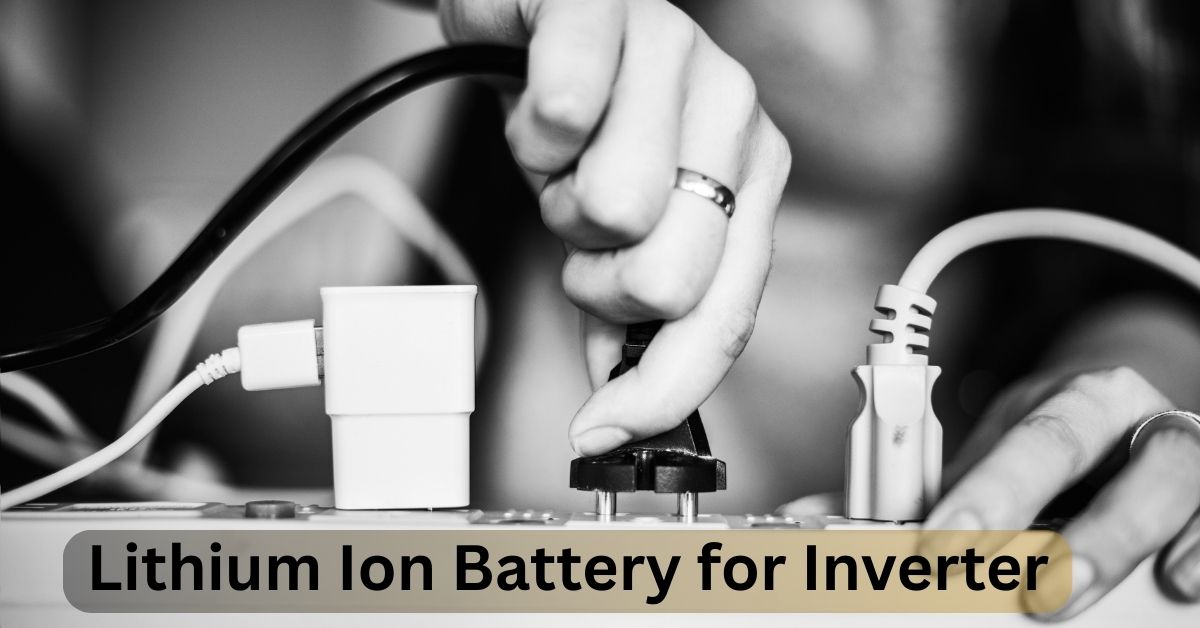In today’s fast-paced world, power outages can bring life to a grinding halt. Whether it’s your home, office, or any critical setup, uninterrupted power supply is essential. Traditionally, lead-acid batteries have been the go-to choice for inverters. But the emergence of lithium-ion batteries is changing the game, offering a more efficient, long-lasting, and hassle-free power backup solution.
If you’re considering upgrading your inverter battery or planning a new installation, lithium-ion might be the best decision you’ll make. In this blog post, we’ll explore everything you need to know about using lithium-ion batteries with inverters—their benefits, limitations, costs, and key considerations.
What is a Lithium Ion Battery?
A lithium-ion (Li-ion) battery is a type of rechargeable battery that relies on lithium ions moving between the anode and cathode to store and release energy. These batteries are known for their high energy density, lightweight design, and long cycle life. They’re widely used in smartphones, laptops, electric vehicles, and now increasingly in inverter systems.
Unlike traditional lead-acid batteries, which use lead plates and sulfuric acid, lithium-ion batteries use lithium compounds and advanced electronic management systems (BMS – Battery Management Systems) to ensure safety, efficiency, and longevity.
Why Choose Lithium Ion Batteries for Inverters?
1. Longer Lifespan
Lithium-ion batteries can last 10 to 15 years or 2000 to 5000 charge-discharge cycles, depending on the quality and usage. In comparison, lead-acid batteries typically last 3 to 5 years with 300 to 500 cycles. Over time, the extended lifespan of Li-ion batteries makes them a more cost-effective option.
2. Fast Charging
Time is money, especially when dealing with power interruptions. Lithium-ion batteries can charge up to 3x faster than lead-acid batteries. This rapid recharge rate means your backup power system is ready much quicker, which is crucial in areas with frequent outages.
3. Maintenance-Free Operation
Forget about checking water levels or worrying about acid leaks. Lithium-ion batteries are completely sealed and maintenance-free. This makes them a safer and more convenient choice, especially for residential use.
4. High Efficiency and Low Self-Discharge
Lithium-ion batteries operate at an efficiency rate of over 95%, which means very little energy is wasted. Additionally, they have a low self-discharge rate (about 3% per month), so even if unused, they retain their charge much better than other types.
5. Lightweight and Compact
Space-saving is another strong advantage. Lithium-ion batteries are up to 50% lighter and more compact than lead-acid batteries with the same capacity. This makes installation easier, particularly in homes and small offices.
Applications of Lithium-Ion Inverter Batteries
-
Residential Backup Systems: Perfect for homes dealing with frequent load shedding or power fluctuations.
-
Offices and Commercial Spaces: Ideal for maintaining business continuity during outages.
-
Solar Power Storage: Lithium-ion batteries pair seamlessly with solar systems, storing excess energy efficiently.
-
Mobile Units and RVs: Lightweight and powerful, they’re great for mobile homes and off-grid setups.
Things to Consider Before Buying
1. Compatibility with Inverter
Not all inverters are designed for lithium-ion batteries. Ensure that your inverter supports Li-ion charging profiles or opt for a hybrid inverter that can handle both lead-acid and lithium-ion batteries.
2. Battery Capacity
Choose a battery with the right capacity to meet your power needs. Capacity is measured in Ah (Ampere-hours) or kWh. Calculate your daily usage and select accordingly.
3. Battery Management System (BMS)
Always go for a lithium-ion battery that comes with a reliable BMS. This ensures protection from overcharging, deep discharge, short circuits, and thermal runaway.
4. Warranty and Support
A good lithium-ion battery should come with at least 5 to 10 years of warranty. Also, check for after-sales service, technical support, and availability of spare parts.
5. Price vs. Performance
Yes, lithium-ion batteries are more expensive upfront—costing roughly 2-3 times more than lead-acid. However, considering their lifespan and efficiency, they offer better return on investment (ROI) over the long term.
Top Brands Offering Lithium-Ion Batteries for Inverters in India
-
Luminous: Known for their reliable home UPS systems and now offering Li-ion models.
-
Exide: A trusted name in batteries, now entering the lithium segment.
-
Amaron: Offers high-quality inverter batteries including lithium variants.
-
Tesla Power: Focused on advanced lithium-ion storage solutions.
-
Okaya and Livguard: Offering energy-efficient lithium solutions with good support.
FAQs – Lithium Ion Battery for Inverter
Q1: Can I use a lithium-ion battery with my existing inverter?
It depends on the inverter. Some inverters support both lead-acid and lithium-ion batteries, while others don’t. You may need a compatible or hybrid inverter that supports lithium-ion charging algorithms.
Q2: How long do lithium-ion inverter batteries last?
On average, a lithium-ion battery can last 10 years or more with proper usage. Some high-quality models can last up to 15 years.
Q3: Are lithium-ion batteries safe for home use?
Yes, especially when equipped with a proper Battery Management System (BMS). These batteries are sealed, do not emit gases, and are generally much safer than traditional flooded lead-acid batteries.
Q4: What’s the cost of a lithium-ion inverter battery in India?
Prices can range from ₹25,000 to ₹1,00,000 or more depending on capacity, brand, and features. Though expensive initially, they provide better long-term value.
Q5: Do lithium-ion batteries work with solar inverters?
Absolutely. Lithium-ion batteries are often preferred for solar energy storage due to their efficiency and long lifespan. Just make sure your solar inverter is compatible.
Conclusion
Lithium-ion batteries are rapidly becoming the preferred choice for inverter power backup systems. Their long lifespan, fast charging, high efficiency, and maintenance-free nature make them a solid investment. While the upfront cost may be higher, the performance and peace of mind they offer are worth every penny.
If you’re planning to upgrade your power backup or build a new system—especially if you’re integrating solar—consider going the lithium-ion route. It’s not just a battery; it’s a smarter, cleaner, and more future-ready energy solution.

